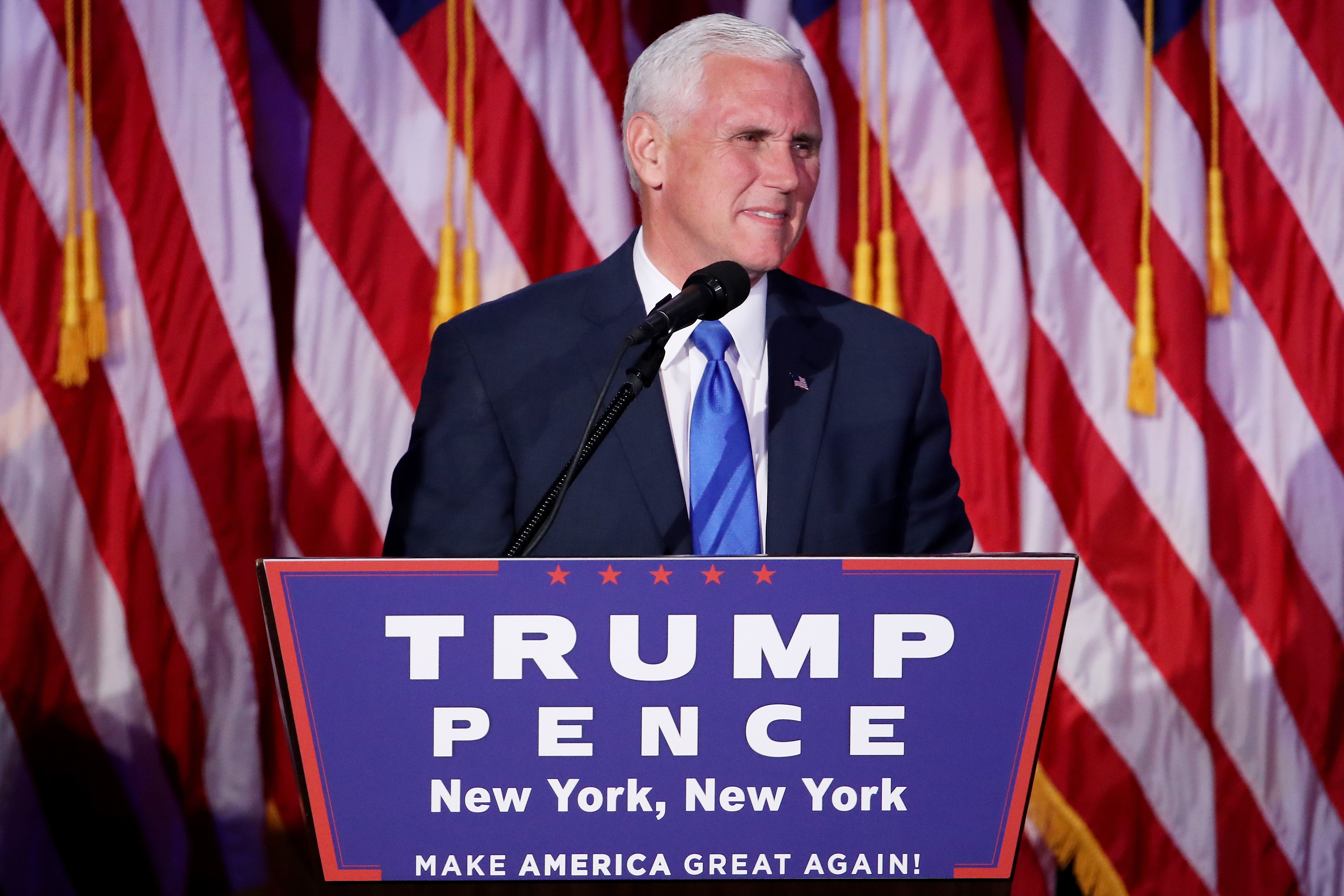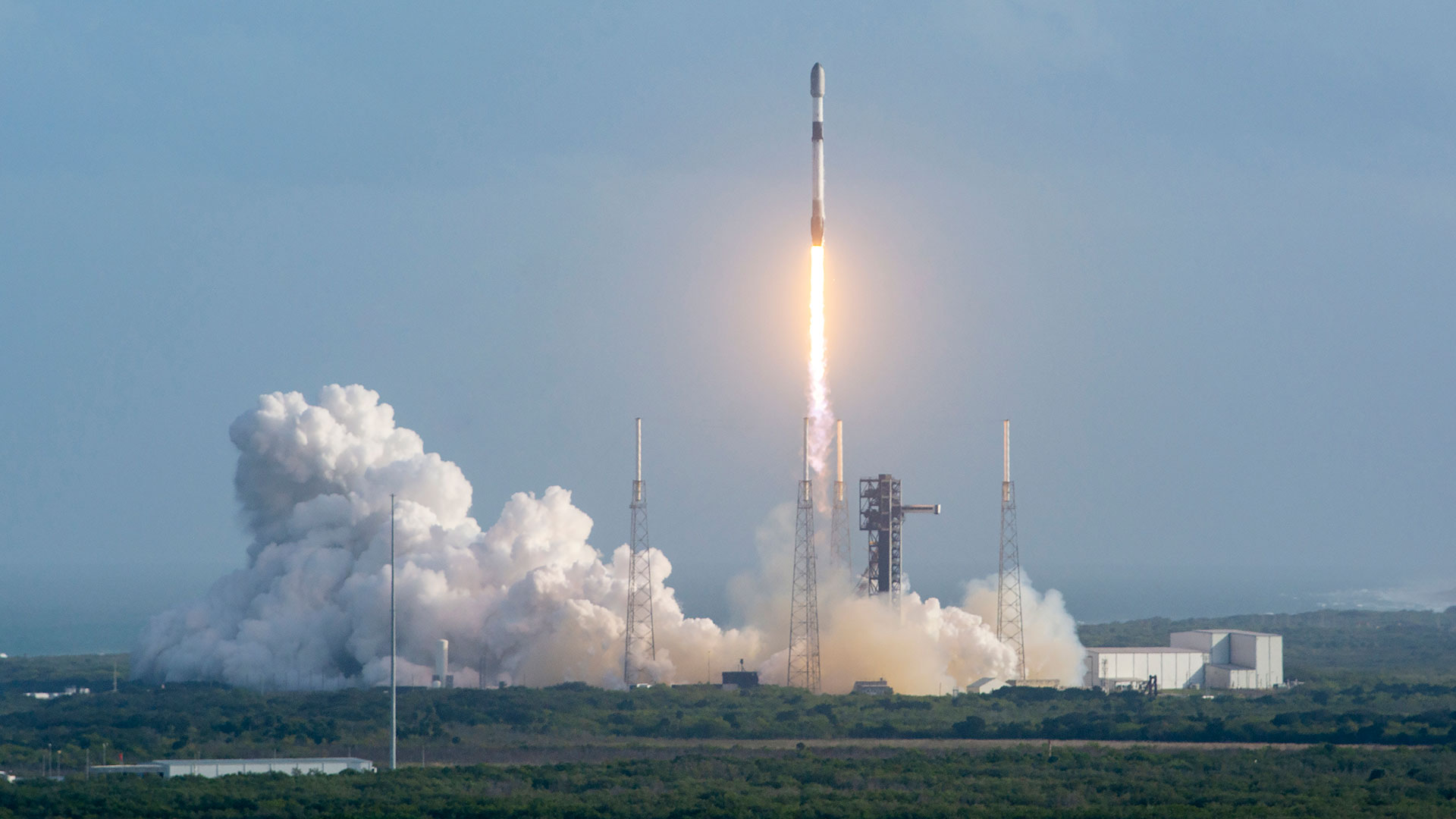Babin Backs Pence-led National Space Council

HOUSTON — The chairman of the House space subcommittee said Nov. 15 that he believes Vice President-elect Mike Pence would do a good job running a reconstituted National Space Council, a key element of the Trump campaign's proposed space policy.
In a video address given at the Space Commerce Conference and Exposition, or Spacecom, here, Rep. Brian Babin (R-Texas) also endorsed other elements of the Trump space policy, including a greater focus on human spaceflight versus Earth science research.
Babin, whose Houston-area district includes NASA's Johnson Space Center, said he met Pence during a campaign stop Oct. 31 in Cocoa, Florida. "I was very impressed with him, and I'm very pleased that he's going to chair a newly-resurrected National Space Council," he said of Pence. "This should give space the attention and focus that has been missing for far too many years."
One element of the space policy outlined by the Trump campaign in the weeks leading up to the Nov. 8 election was to recreate the National Space Council, which last operated during the administration of President George H.W. Bush. That council has been formally chaired by the vice president in the past.
Pence, in that Oct. 31 speech, outlined the elements of the campaign's space policy, including restoring the National Space Council as well as a greater focus on human space exploration and increased use of public-private partnerships. "Our space program needs new leadership, and a new vision," he said, adding he would work with people in Congress like Babin to implement those plans.
Pence, who spent 12 years in the House before being elected governor of Indiana in 2012, was not active on space issues during his time in Congress. From 2005 to 2007 he was chairman of the Republican Study Committee, a group of conservative members that offered proposals for reducing federal spending. Those proposals included, at the time Pence led the committee, cutting funding for human missions to the moon and Mars under President George W. Bush's Vision for Space Exploration.
Babin, in his address at Spacecom, said he did not expect the next administration to provide major increases in funding to NASA. "As much as I would be thrilled to see NASA's budget doubled, we have to be realistic, and ensure that the tax dollars we currently receive are focused on the right missions," he said.
Breaking space news, the latest updates on rocket launches, skywatching events and more!
Babin said those "right missions" include work to achieve a long-term goal of human missions to Mars, "with a focus on the moon or cislunar [space] as an important step in that direction." He also supported more partnerships with the private sector along those lines.
The Trump policy also calls for an emphasis on human space exploration at NASA in favor of research on climate change, a position aligned with Babin's views. "The agency has gotten a bit distracted over the years with significant funding being siphoned off to support climate change research efforts," he argued, noting that other agencies could handle that work instead. "NASA is the only federal agency that does human spaceflight, and I'm going to keep fighting to make sure that they have the resources to succeed."
This story was provided by SpaceNews, dedicated to covering all aspects of the space industry.

Jeff Foust is a Senior Staff Writer at SpaceNews, a space industry news magazine and website, where he writes about space policy, commercial spaceflight and other aerospace industry topics. Jeff has a Ph.D. in planetary sciences from the Massachusetts Institute of Technology and earned a bachelor's degree in geophysics and planetary science from the California Institute of Technology. You can see Jeff's latest projects by following him on Twitter.

